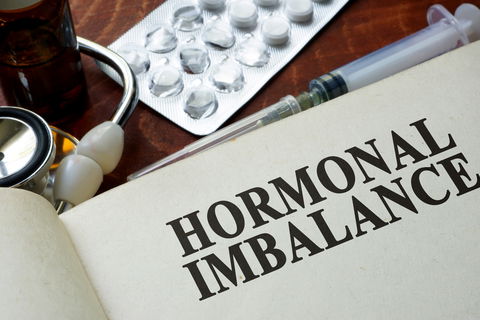Hormone Disparity Can Cause Unexpected Weight Gain

Part 2 of a two part series on Hormonal Imbalance and Weight Loss
When weight loss is hormonally difficult, your metabolic rate is often slowed making it easy to gain but hard to lose weight. If your glands release too much or too little hormone, there is hormonal imbalance. No doubt, that one of the causes of unexpected weight gain is hormone disparity. Numerous problems can occur in your endocrine system that may lead to excessive or deficient hormone production. When your hormones are in balance, your metabolism is responsible for maintaining how many calories your body burns when active and at rest.
Overeating can make you fatter
Insulin is made and released into the blood by the pancreas. Both affect the function of organs and tissues. Insulin is not the only player as other hormones can also affect weight gain as well as your overall health and wellness. Although insulin causes fat cells to expand by absorbing fatty acids and glucose, that alone does not cause weight gain. Overeating, especially too much of the wrong foods, is what makes you fatter. When it comes to fat storage, insulin increases the storage of fat in fat cells as well as prevents fat cells from releasing fat to be burned for energy.
Leptin hormone decreases your appetite
Leptin is a hormone made by fat cells that decreases your appetite. Ghrelin is a hormone secreted in the stomach lining that signals hunger. Both play a significant role in maintaining body weight. Multiple receptors exist in various cells. These produce leptin and ghrelin as well as other hormones that can interfere with signals for food intake and affect the hormonal balance between your fat cells and your appetite. Leptin resistance is similar to insulin resistance and both occur together in obese people. However, obese men tend to have more belly fat and higher insulin levels, while obese women tend to have more fat under their skin and higher leptin levels.
Thyroid problems are more common in women
Regardless of the reason, if there are lower levels of circulating thyroid hormones, then your metabolic processes slow down tremendously resulting in weight gain. Endocrine disruptors found in the environment, vitamin deficiencies and gluten sensitivity could reduce the amount of thyroid hormone your body produces. Hypothyroidism is a condition where your body does not make enough thyroid hormone. It is more common in women, people with other thyroid problems, and those over 60 years old. Researchers estimate that low thyroid hormone affects one in five women and one in ten men with over half of the cases going undiagnosed.
By submitting this form, you agree to receive marketing text messages from us at the number provided, including messages sent by autodialer. Consent is not a condition of any purchase. Message and data rates may apply. Message frequency varies. Reply HELP for help or STOP to cancel. View our Privacy Policy and Terms of Service.

